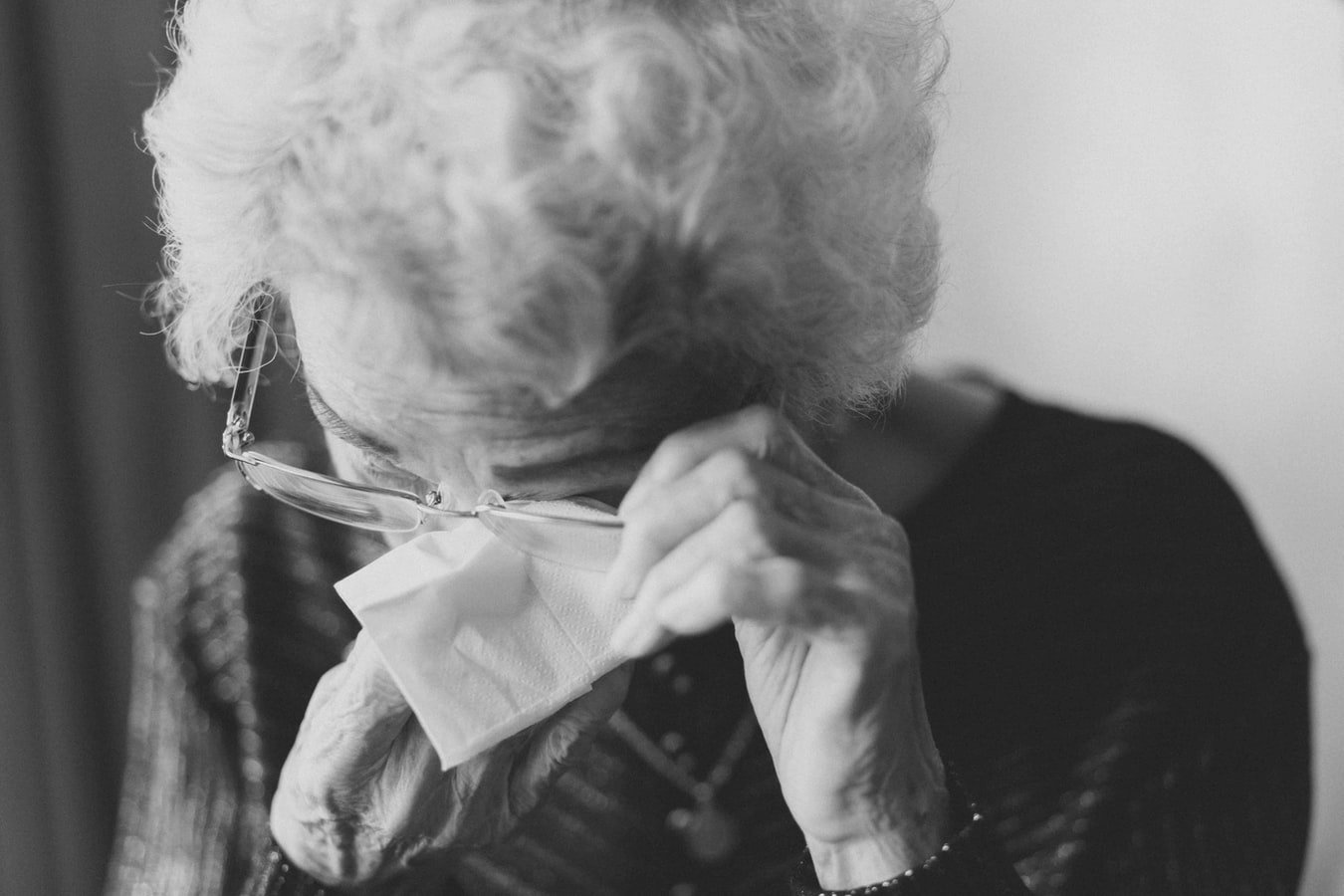Effect of Lockdown: Examining the difficulties Covid-19 brought to Age UK Medway

Published on 20 May 2022 01:28 PM
Written by local journalism student, Liam Treacy, in November 2021, an examination of the effects of lockdown on our charity and on older people, particularly throughout the years 2020 and 2021.
The past 18 months have provided various challenges for all of us; we have experienced full scale lockdowns, only being allowed out for the odd brisk walk here and there. Some workers have been laid off, and all of us will have had an absent loved one, either through becoming ill or due to lockdown restrictions. There is hardly a service in the whole of Britain that has remained unaffected during this period.
Sadly, as is often the case, it is those who do the most for us that have suffered the most, that is the charities and non-profit organisations. According to a blog by the Charity Commission written on the UK government website, charities across the board have identified a number of potential issues that could arrive later down the line:
- Challenges with long-term funding
- The difficulty to plan long-term due to unforeseen circumstances
- The time it will take for charities to reset and work as normal pre-Covid
- Challenges in returning to pre-pandemic levels of engagement when working with vulnerable people.
Age UK, a charity based in the UK who have a total of over 400 charity shops and numerous day centres across the country (run by local Age UK partner charities), were one of a number of charities hit hard during the pandemic. Age UK provide crucial support to the elderly, both nationally and via various local Age UK charities, with a number of vital on-the-go services that are either in person or online.
Age UK Medway, which is an independent charity who provides support for the elderly in the local towns of Medway and Faversham, have been hard at work, and they have provided their total figures from the lockdown;
Age UK Medway have*:
- Delivered 15,014 freshly cooked meals and 8,974 snack packs
- Made 3,953 welfare telephone calls and good day calls
- 30, 960 homecare visits, over 200 emergency shopping packs, hampers, and prescriptions have been delivered
- Provided over 2,950 virtual day centre packs
- Completed 2,000 activity telephone calls
- Doubled their number of active volunteers from an average of 50 to over 100
Read Age UK Medway's Impact Reports for further stats
*To see more data and statistics from the years 2019-2021, click here to view our most recent Impact Reports.
Age UK Medway’s head office is based in the Historic Dockyard in Chatham and it serves the older population of the Medway towns, delivering a host of services including Homecare, Meal Deliveries, Good Day Calls, Footcare, and Befriending. It also offers dementia services, such as a specialised dementia centre and cognitive therapy centre, as well as its mainstream day centre services.
The charity were extremely concerned over a number of situations during the pandemic, and the financial impact was perhaps the most critical. John Norley, CEO of Age UK Medway, sounded out these concerns and spoke about his thoughts at the time;
“At the beginning of the pandemic, around March 23rd we got really hit hard, as this was when we had to deal with the national lockdown coming in to effect. It hit us because we were not a charity that relied on government grants. We charged our service users directly for the use of our services and up until the pandemic started, this was considered quite forward-thinking because it meant that the charity was quite secure. However, because of the lockdown which was supposed to last at least three months, our income was directly affected.”
During lockdown, Age UK Medway set up their first ever emergency fundraising campaign as the CEO had projected a loss of at least half a million pounds;
“During this period, we realised we had to make some dramatic changes to the charity, in order to stop it from closing. We decided to take the government’s estimation of the three-month lockdown, and we decided to roll that into our cash-flow to say, ‘okay we won't get anything for at least three months’. We had a think about how this would affect us financially, and we ended up projecting a loss of at least half a million pounds. So, we immediately started thinking about fundraising, and we actually set up our first emergency fundraising campaign.”
John Norley praised the support from the general public, during what was a difficult time for the charity, outlining that “the response has been huge, and has been our biggest and best support.” When the charity set out in their big fundraising ask for half a million, they did not “expect anywhere near that”, John explained, but in the end, they ended up raising around an incredible and unexpected £320,000.
During the lockdown, the government put in place a loan scheme which was meant to help struggling businesses. John reflected on this scheme as well, as the furlough scheme, when discussing the charities struggles;
“Some of the measures put in place haven’t really worked for us as we are a charity, but the furlough scheme worked well for those that could be placed on it (remembering that most of our staff are hands-on and face-to-face in a care setting and it was not possible to furlough those staff as people still needed care).
The other big scheme the government put in place was the Coronavirus Business Interruption Loan Scheme, known as (CBILS) which the chancellor (Rishi Sunak) announced in April as a temporary loan to help businesses during the cash flow crisis. But the issue with CBILS is that they [the government] gave the banks the responsibility of lending that money, which meant that the loans had exactly the same criteria as they would for a business loan. Of course, our charity (and charities in general) are not designed to make a profit, so banks would reject most applications from charities like us based on the lack of turnover and so this scheme did not work at all.”
Sue Creasey, Day Centre Manager of Age UK Medway’s Mackenney Centre in Gillingham, spoke about the impact of lockdown in her day centre. She spoke about the lack of cohesion from the government, and how her staff and service users struggled to follow government guidance, and the general impact on her staff and service users (the average age of service users being 80 years old);
“The lockdown has caused lots of issues for the service users. When lockdowns were finally lifted and older people were allowed to leave the house, we had a small amount, maybe 10% of them, saying they cannot leave their house. The rest of them could not wait to come back, but they were different compared to how they left us. They were more fragile; they were not so secure in themselves. They really didn’t like anybody going near them, it had scared them that much, and I think the damage that’s been done will have a lasting effect.
At the beginning there were a lot of challenges, because of the social distancing put in place. They were used to having a full table, and having 8 people around that table because they're all friends. Enforcing rules that restricted tables down to only 3 people confused them and they would try to go and get a chair for their friend. We would say ‘no, it has to only be 3’, and they did not understand that. They would ask ‘why can't we have the tea and sugar on the same table?’ and we would explain ‘because you’ve touched it and other people have touched it’.
The council in the beginning were a bit more forthcoming because they agreed to fund the service users’ meals and snack packs for a period of time. However, as soon as we opened our doors, the council’s input was more revolved around checking we were meeting regulations, than offering us further help or support.
The main help we got from the government was the PPE and the furlough scheme, a lot of the messaging around rules and lockdowns caused more worry to people."
As the charity began to restore to a stable level, these were both Sue Creasey and John Norley’s individual accounts of the events leading up and during the pandemic, and it is clear to see there were a variety of challenges and difficulties impacting on the charity, and all charities, during this time. In the end, as the CEO of Age UK Medway had stated, the general public ended up making a huge difference and cannot be mentioned enough for this.
Well done to all the staff at Age UK Medway, and to the CEO for guiding the charity through this period and helping to steady the ship. The staff helped to deliver meals, care and support to the elderly who could not make it out of their homes.
By Liam Treacy, Journalism Student
November 2021
